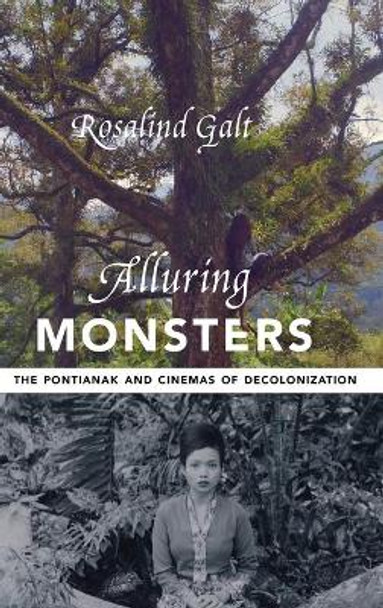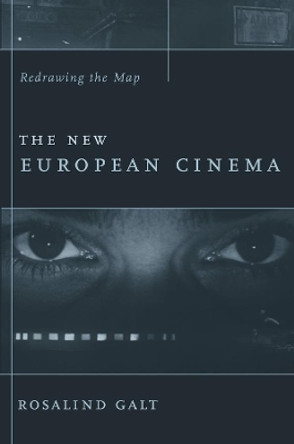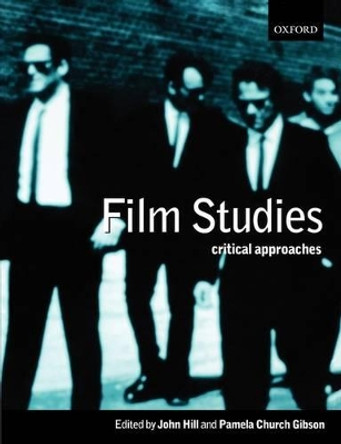Description
In Alluring Monsters, Rosalind Galt explores how and why the pontianak found new life in postcolonial Southeast Asian film and society. She argues that the figure speaks to a series of intersecting anxieties: about femininity and modernity, globalization and indigeneity, racial and national identities, the relationship of Islam to animism, and heritage and environmental destruction. The pontianak offers abundant feminist potential, but her disruptive gender politics also unsettle queer and feminist film theories by putting them in dialogue with Malay epistemologies. Reading the pontianak as a precolonial figure of disturbance within postcolonial cultures, Galt reveals the importance of cinema to histories and theories of decolonization. From the horror films made by Cathay Keris and Shaw Studios in the 1950s and 1960s to contemporary film, television, art, and fiction in Malaysia and Singapore, the pontianak in all her media forms sheds light on how postcolonial identities are both developed and contested. In tracing the entanglements of Malay feminist animisms with postcolonial visual cultures, Alluring Monsters reveals how a "pontianak theory" can reshape understandings of anticolonial aesthetics and world cinema.
About the Author
Rosalind Galt is professor of film studies at King's College London. Her previous Columbia University Press books are The New European Cinema: Redrawing the Map (2006) and Pretty: Film and the Decorative Image (2011), and she is coauthor of Queer Cinema in the World (2016).
Reviews
Alluring Monsters is indispensable reading for those interested in how media, folklore, and anticolonial feminism might be explored together. The pontianak, a female ghost of childbirth with queer feminist appeal, is a fascinating fusion of pre-Islamic animism and postindependence aspirations; her influence on transnational vampire lore is decisive but little known. Galt's deep dive into the political potential of the pontianak moves from colonial misconstruals of indigenous culture to late-colonial studio films and the decolonizing impulses of Malaysian and Singaporean popular cinemas. Across such multiethnic, intercultural flows, Galt explores issues of racialization, ethnonationalism, and environmentalism via an archivally rich exploration of supernatural horror in Southeast Asian and world cinemas. -- Bliss Cua Lim, author of Translating Time: Cinema, the Fantastic, and Temporal Critique
The first of its kind and a book like no other, Alluring Monsters brings Southeast Asian cinema and postcoloniality into productive tension through the much-beloved yet much-feared figure of the pontianak. Rosalind Galt has created thrilling new paths for thinking about postcolonial cinema, animism, feminism, queer/trans subjectivities, and decolonial politics. -- Alicia Izharuddin, author of Gender and Islam in Indonesian Cinema
Alluring Monsters delivers on all of its ambitious promises. Rosalind Galt elegantly balances the local and the global, the historical and the theoretical, the industrial and the aesthetic, the cultural and the political, the filmic and the related arts. The result is an important new model for imagining world cinema. -- Adam Lowenstein, author of Dreaming of Cinema: Spectatorship, Surrealism, and the Age of Digital Media
Alluring Monsters is an excellent study of the role of the ubiquitous pontianak in the Malay cinema located in Malaysia and Singapore during the cultural processes of the decolonization of both countries. Galt's scholarship is impressive in its breadth and depth, contributing to our understanding of why we must take the monstrous figure of the pontianak seriously. -- Stephen Teo, author of Chinese Martial Arts Film and the Philosophy of Action
Galt offers a rich and vivid history of the pontianak's relevance to questions of race, gender, and Islam in the context of decolonization in the Malay peninsula. This book's entwinement of local historiography with theorizations of the global comprises its bold and welcome intervention. -- Iggy Cortez * Film Quarterly *
A history lesson on this understudied cinematic culture and also a nuanced theoretical study that demonstrates the author's knowledge of Malay cinema and contemporary cultural and cinematic theory. Though Galt centers on Malay cinema, the study will be invaluable for those interested in the horror genre and cinema in non-Western nations in general. -- G. R. Butters Jr. * Choice Reviews *
Galt offers new insights for understanding decolonisation discourses in which knowledge categories and identity are questioned. Indeed, this book opens up new ways to study other mythical horror figures that put Western rationalisation at stake. -- Erika Tiburcio-Moreno * Historical Journal of Film, Radio and Television *
A truly unique achievement on multiple levels. -- Alicia Izharuddin * Journal of Vampire Studies *
Superlative scholarship. . .[Galt's] research is wide-ranging and thorough, providing a groundbreaking understanding of a popular culture icon through the lens of decolonization. -- Philippe Mather * East Asian Journal of Popular Culture *
Alluring Monsters is an insightful and sophisticated piece of work that illuminates how a popular film subgenre that features the most iconic hantu in the region facilitates a theoretical debate about world cinema. In addition, it serves as a conduit for multiple meanings and discourses that reflect colonial legacies and ideologies that continue to haunt postcolonial Malaysian and Singaporean societies. -- Norman Yusoff * Sojourn: Journal of Social Issues in Southeast Asia *
Trenchantly argued and eminently readable, Alluring Monsters will be of interest to anyone interested in feminist film criticism, the horror film, histories of world cinemas, and indeed, history as such. -- Sen Meheli * Journal of Religion & Film *
[A] very rich decolonial book . . . what makes the book so fascinating and unique is its fertile dalliance with contemporary scholarship in other fields like ecocinema and new animisms, which are gaining some momentum in Southeast Asian cinema. Thus, while providing a rich foundation for students of Southeast Asian cinema, the book also carries a broader appeal beyond Asian studies. -- Gaik Cheng Khoo * Journal of Asian Studies *
Undoubtedly an important contribution to Malay cultures and cinema. -- David H.J. Neo * Asian Ethnicity *
Engagingly written and impressively well-researched. * Pacific Affairs *
Awards
Long-listed for Moving Image Book Award, Kraszna-Krausz Foundation 2022.
Book Information
ISBN 9780231201322
Author Rosalind Galt
Format Hardback
Page Count 312
Imprint Columbia University Press
Publisher Columbia University Press
Series Film and Culture Series
Details
Subtitle: |
The Pontianak and Cinemas of Decolonization |
Series: |
Film and Culture Series |
Imprint: |
Columbia University Press |















